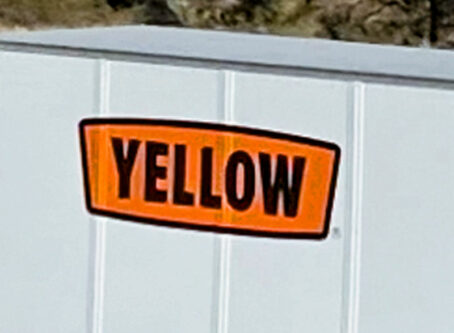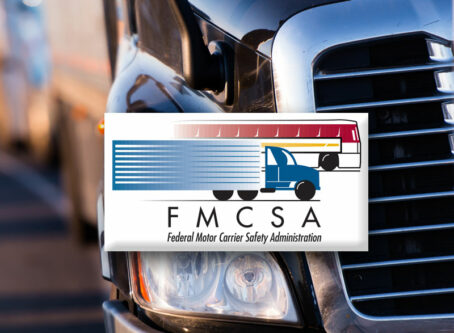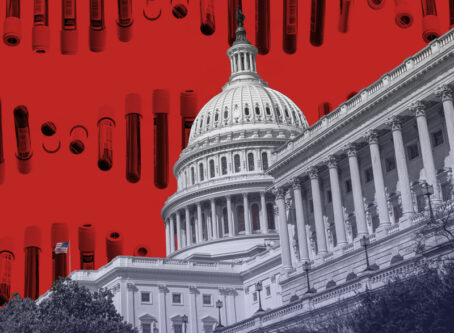OOIDA to labor secretary: All truck drivers should be exempt from vaccine rule
Earlier this month, U.S. Labor Secretary Marty Walsh said the Occupational Safety and Health Administration’s COVID-19 vaccine rule won’t apply to most truck drivers as they are alone in their cab.
However, the Owner-Operator Independent Drivers Association doesn’t want the exemptions for truck drivers to stop there. In a letter dated Friday, Nov. 12, OOIDA asked the Labor Department to also exempt team drivers from the OSHA emergency temporary standard vaccine rule, which mandates the COVID-19 vaccine or mandatory testing for companies with 100 or more employees.
“While the emergency temporary standard does not apply to small motor carriers with fewer than 100 employees and is not intended to cover ‘most truckers,’ our interpretation is that the mandate will needlessly force thousands of team drivers to choose between their livelihoods and their personal medical preferences,” OOIDA wrote in a letter signed by President and CEO Todd Spencer.
“As currently proposed, the emergency temporary standard will require team drivers to be vaccinated or submit weekly testing results, perhaps at their own personal cost. Additionally, team drivers would have to wear face coverings when they’re in the truck. In light of these circumstances, we are requesting that OSHA grant an exemption for any team drivers from the emergency temporary standard.”
Emergency temporary standard
OSHA’s emergency temporary standard was published in the Federal Register on Nov. 5. The rule requires each worker who is not fully vaccinated to be tested for COVID-19 at least weekly. The rule is being rolled out in two phases. By Dec. 6, employers with 100 or more employees will have to determine the vaccination status of all covered employees and require all unvaccinated employees to wear masks at indoor workplaces. By Jan. 4, unvaccinated employees who fall under the rule will be required to be tested at least weekly for COVID-19.
The rule has already prompted lawsuits and has received considerable pushback from the trucking industry.
Most truckers exempt
That pushback prompted Walsh to clarify that most truck drivers would not fall under the umbrella of the rule.
“We’ve heard some pushback from truckers today,” Walsh told MSNBC last week. “The ironic thing is most truckers are not covered by this because they’re driving a truck. They’re in a cab, they’re by themselves, they wouldn’t be covered by this.”
A Labor Department spokesperson further clarified to CNBC that the vaccination and testing requirements would apply to team truck drivers and for those who interact with people in buildings at their destinations or starting points.
If the rule is deemed constitutional, it should apply only to a small percentage of truck drivers. According to the OOIDA Foundation, 96% of motor carriers have no more than 25 drivers, meaning most trucking companies will have fewer than 100 employees.
Still, OOIDA says all truck drivers should be exempt.
“Team drivers are a staple within the industry,” the Association wrote. “This is a common arrangement for many husband and wife couples, family members, or other business partners who work together.
“Given the nature of their work, team drivers should be given the same considerations as employees who do not report to a workplace where other individuals or customers are present and employees who work exclusively outdoors.”
OOIDA opposes another ‘heavy-handed mandate’
OOIDA said that truck drivers, who have sacrificed to keep American moving throughout the pandemic, shouldn’t be given another mandate.
“We fear that the emergency temporary standard is another example of federal regulators forcing a needless mandate upon truckers,” OOIDA wrote. “Trucking is among the most regulated professions in the country and the ongoing supply chain crisis has exposed the unpaid wait times and other difficult working conditions are often forced to endure.
“Rather than imposing another heavy-handed mandate on the trucking workforce, the administration should start looking for less intrusive alternatives that can enhance highway safety and improve working conditions for trucking businesses. Clarifying that team drivers are not covered under the emergency temporary standard would certainly be helpful in that regard.”
In addition, OOIDA wants the Labor Department to provide more clarity on all of the ways the vaccine rule could affect truck drivers.
“Given the diversity of the trucking industry, there are also many outstanding questions about how the emergency temporary standard will be implemented and enforced for various types of professional drivers,” OOIDA wrote. “OSHA should provide further clarity on these matters.” LL









